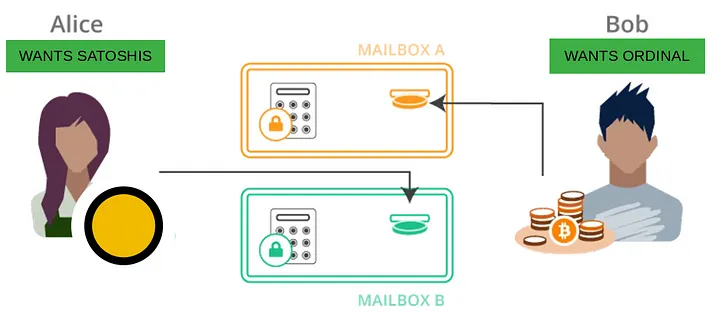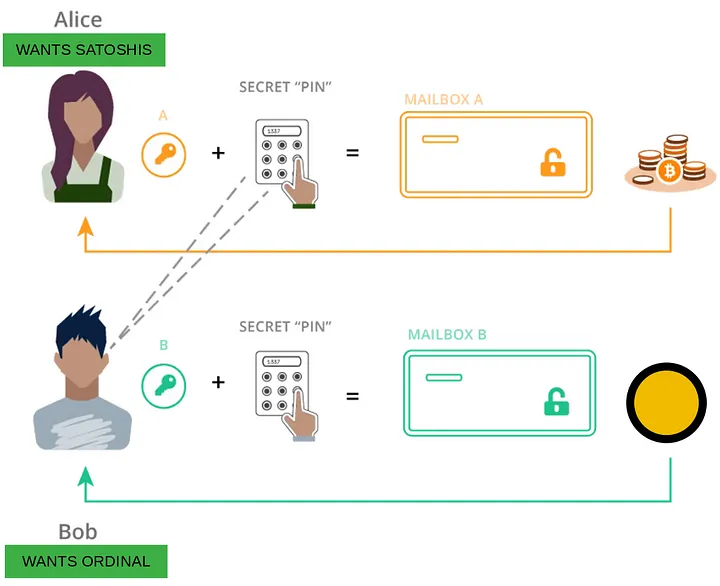|
Getting your Trinity Audio player ready...
|
This post was first published on Medium.
Using Hash Time-Locked Contracts
As we have shown before, Ordinals can be seamlessly combined with bitcoin smart contracts. To further demonstrate the power and flexibility of combining them, we lock up an ordinal into a Hash Time-Locked Contract (HTLC) and atomically swap it with bitcoins, allowing trustless trading.
Atomic swap
To swap Ordinals and BSV, we just apply the same atomic swap protocol used to swap BSV and BTC, with two slight differences:
- Swap between assets on the same chain, instead of across two different chains. The protocol works the same since it relies on two hash locks having same PINs/preimages, regardless of the blockchains they are running on.
- Swap Ordinals tokens rather than native assets such as BTC or BSV.

During setup, an ordinal is transferred to a HLTC, whose code we reproduce below.
Due to its compatibility with Ordinals, the smart contract needs no change at all. It is the same contract as before. It locks up Ordinals, the same way as bitcoins, because both use UTXO model.
The rest of protocol execution is the same as swapping BSV and BTC.

Here is a run for Ordinal #25883457:
- setup tx: https://whatsonchain.com/tx/63370f71e1f52474f74
ae964fdd59ac96a1f8f0b886b5e4ebcd9003411af73c4 - swap tx: https://whatsonchain.com/tx/d4eb46f64941ba6d08
be6415cb3c59fcc4a3171759c7740a245c7eb18986ac10
Extension
It is straightforward to extend it to atomically swap other pair of assets, as long as they are on chains that support both HLTC and Ordinals, e.g.,
- Ordinals <-> Ordinals: same chain or different chains
- Ordinals on Bitcore Core <-> BTC
- Ordinals on Bitcoin SV <-> BTC
- Ordinals on Bitcoin Core <-> BSV.
Watch CoinGeek Roundtable Episode 7: 1Sat Ordinals on Bitcoin

 02-19-2026
02-19-2026 




